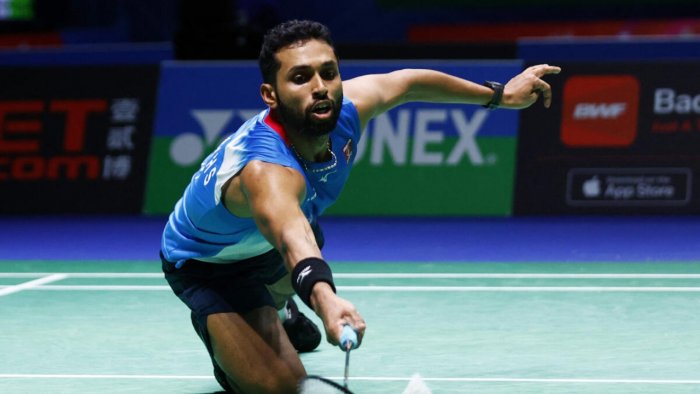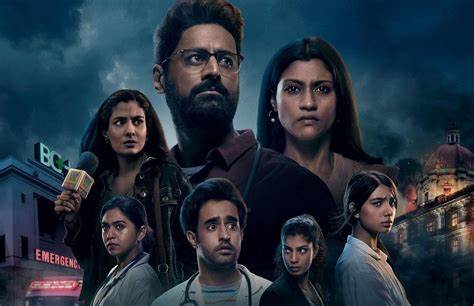Is BJP planning to bring a new cultural policy, in place of ‘pluralistic’ cultural policy?

-By Muralidhara Khajane
Bengaluru: A recent announcement by the Minister for Kannada and Culture V Sunil Kumar on envisaging a new Cultural Policy for Karnataka, to further the progress of rich language, culture, and heritage of the land, signals at the possibility of stirring the cultural conundrum and triggering a major debate in the cultural spectrum of the land.
This is because of the ideological and cultural differences between the previous Congress regime in the state, which implemented “the first cultural policy by a state in the federal structure of the country”, and the present Bharatiya Janata Party (BJP) dispensation in Karnataka.

Conferring annual awards instituted by the Karnataka government to honor the cultural icons for 2019-20, V Sunil Kumar announced that a new cultural policy will be formulated after consulting the experts in the cultural spectrum of Karnataka.
It is significant that the idea of Karnataka having its own Cultural Policy was mooted a quarter-century ago. The plan to have cultural policy was first envisaged during the Janata Dal government in 1996. It is significant that a committee headed by Dr. Baraguru Ramachandrappa was formed during the Congress tenure in 2000. Though the BJP government took initiative in formulating a Cultural Policy in 2013, it failed to take the issue forward.
Finally, the Congress government headed by Siddaramaiah decided to have a definitive policy for culture, after coming to power. Siddaramaiah’s eagerness to position himself as a staunch Kannada supporter has led to the revival of cultural policy which has been on the backburner for the past 25 years. Siddaramaiah constituted a six-member cultural experts committee headed by Baraguru Ramachandrappa in 2013 with a brief to draft a definitive policy on culture. The Committee submitted its 68-page report comprising of 44 recommendations in June 2014.
There was a delay in implementing the Cultural Policy by the Congress government. It is important that; a report by the Comptroller and Auditor General had flayed the Congress government’s delay in implementing the policy. Ultimately the report was referred to Cabinet Sub-Committee headed by senior politician H K Patil, the Minister for Rural Development and Panchayat Raj (RDPR). This Committee’s brief was to study implications (including the financial) of implementing the comprehensive policy report submitted by six-member Baraguru Ramachandrappa Committee.

“Patil discussed with me on the various recommendations of the report and finally shown green signal for implementing that, with few alterations that were needed to facilitate trouble-free implementation. The government issued a gazette notification on the implementation of the report. On issuing the notification, the government acted upon two recommendations and took them to a logical end”, says Baraguru Ramachandrappa.
The cabinet cleared the cultural policy in the backdrop of the State government’s strong stand on issues such as separate State Flag. The government also allocated Rs.60-crore for implementing the policy in 2017-18.
It is regrettable that, even after accepting the report and issuing gazette notification, the government did not make efforts to implement the recommendations of the committee, even after two years. The delay surprised many in cultural and political circles because the idea of formulating definitive cultural policy was being read as an attempt by Siddaramaiah (who headed Kannada Kavalu Samithi (Kannada Surveillance Committee, which was set up to supervise the implementation of Kannada as an official language in the state of Karnataka) to take his pro-Kannada and cultural advocacy is another step forward.
People of Karnataka pinned their hopes on Siddaramaiah as, during his tenure as the Chief Minister of Karnataka, he was much in news for his vocal support to issues related to Kannada and culture such as Karnataka flag, opposition to the imposition of Hindi in Bengaluru Metro Rail Corporation. He sent a stern message against those attacking language, land, and water through a 14-minute video title “Karnataka Namma Hemme”.
But despite these stands, neither Siddaramaiah, nor his cabinet did not take firm steps to implement the much ambitious Cultural Policy in its full form. Even the Congress-JD (S) coalition government did not take initiative to take forward the previous Congress's government’s initiative for political reasons. The political instability in the state is also another reason to push the implementation of the Cultural Policy to the back burner.
Prof. Baraguru Ramachandrappa, architect of the cultural policy, and its members are totally upset with the Congress government’s apathy in implementing the Cultural Policy, which is the first of its kind for a state in the country. They are also surprised by the announcement made by the Minister for Kannada and Culture V Sunil Kumar.
C T Ravi, who held the Kannada and Culture portfolio for some time, before assuming party’s position at New Delhi, had told few days before relinquishing the responsibility that; the government would consult the department officials on its implementation and he had to go through the recommendations in detail. Of course, he had said that, the BJP government would implement the cultural policy if he found that acceptable, as framing the cultural policy is an important milestone as it seeks to bring in more accountability to the functioning of the cultural academies in the State.
It looks like the present BJP dispensation is not happy with some of the recommendations in the policy. One of the most important recommendations is to stop moral policing. There are two steps to this. According to the committee’s recommendations, the state police will be responsible for apprehending those resorting to moral policing. Also, a committee will be formed to create awareness against moral policing. The second important recommendation, which comes in the way of BJP pushing its Hindutva agenda is; bringing objectivity with regard to censorship of literary works. The most important recommendation is; constituting a committee to create awareness on communal harmony in areas that are prone to communal tensions. “This recommendation, is aimed at promoting plurality” says Baraguru Ramachandrappa. But it appears all these recommendations hit the BJP government where it hurts most.
But, the question is; whether the new government can appoint an expert committee to study a policy, which is already being implemented through a gazette notification?
Legal and constitutional experts are of the opinion that; once a policy has been implemented, it could be altered after discussing in the legislature and changes could be ushered only after debating the issue threadbare. Advocate CS Dwarakanath, former chairman Karnataka State Commission for Backward Classes reacted that; “it is very simple. Pauli’s exclusion principle in physics proved this. Two things cannot occupy the same quantum state at the same time”.
Appointment of an expert committee or envisaging a new cultural policy, which is already in place and has the mandate of the legislature will raise both legal and constitutional questions.

















